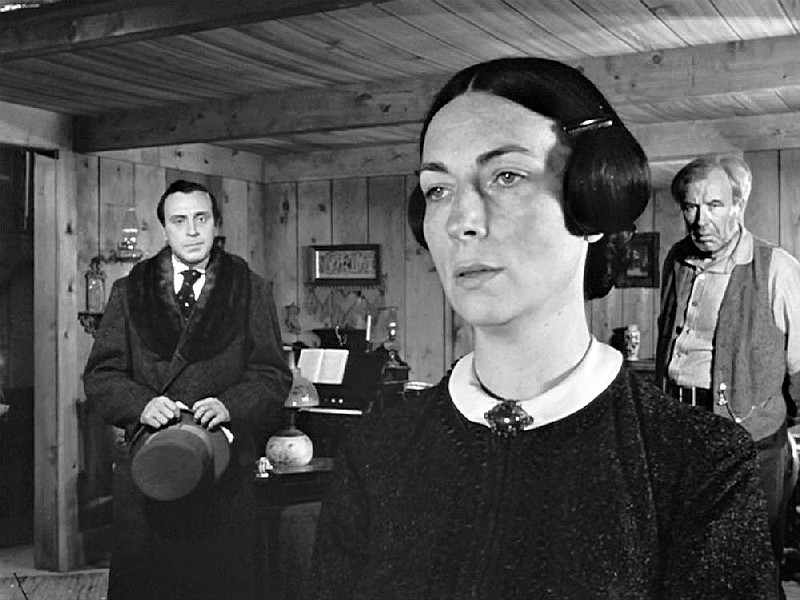I remember being home alone one Saturday afternoon. Bored, I picked up TV Guide to see if anything worthwhile was on. One commercial channel was showing a Western. I thought that would be fun.
There in the window frame of a log cabin stood gaunt Agnes Moorehead. I had seen her before in a Twilight Zone episode, where she was being attacked by tiny aliens from outer space. The plot twist revealed that these aliens were United States astronauts, so -- what a surprise! -- she was the alien monster, not they.
Citizen Kane
Cast: Joseph Cotten, Dorothy Comingore, Everett Sloane, Agnes Moorehead, Ruth Warrick, Ray Collins, Erskine Sanford, Paul Stewart, George Coulouris, Alan Ladd, Orson Welles
Director: Orson Welles
Rating: PG
Running time: 1 hour, 59 minutes
Remembered by: Michael Karl Ritchie, retired professor of English from Arkansas Tech University with work published in various small press magazines, including The Mississippi Review. He has had three small press chapbook publications and Winter Goose Press has just published his collection of poems Ampleforth’s Miscellany. He also has a blog for current poems: mkrspaceship.wordpr…
I settled in to enjoy this cowboy flick, but slowly I discovered that's not what I was watching. Apparently Moorehead was arguing with a banker about ensuring that her son would be taken out of her care and educated in return for giving up her shares in a silver mine. The kid whacked the banker's leg with his sled. Maybe this was a film version of a Charles Dickens novel. By watching it, I wouldn't have to read it.
By the end of this film, interrupted by commercials, I was in tears. I had never experienced a movie before that ripped the skin off the American myth of love and success. It taught me that we live in a society where nobody, not your closest friends, not the woman you love, would ever know who you really were. I was horrified.
And I wanted more. During each commercial break, a placard would appear, apologizing for the fact that the Western originally scheduled for that time could not be shown. But never did the station reveal the title of the film I was watching. When my parents came home, I told them the plot of the movie, but they had no idea what the title was. They had never seen such a movie.
It created in me a thirst. For the first time I realized that movies could be more than entertainment. They could function on the depth of excellent novels, telling complex stories with fully developed characters. They might even be a form of art. I set out on a quest to watch those kinds of movies.
Not until I was in college did I discover what I had seen. The Film Society at the University of Cincinnati was presenting canonical American movies. I attended that series, and one evening, ominous music introduced the gothic barred mansion of Citizen Kane. About 15 minutes into the movie, there was Agnes Moorehead again, standing in the frame of a log cabin. Now I knew what had changed my moviegoing requirements.
Over the years, I would read why the distribution of Citizen Kane had as checkered a history as the career of its impresario Orson Welles. Only recently have disgruntled cineastes at Sight and Sound replaced it with Vertigo as best film of all time. I have mixed feelings about that, since it seems like a shift backward from the novelistic to the spectacle. But Kane lurks in second or third place, and has not gone away. The megalomaniac who directed and starred in it played a role uncomfortably relevant these days.
My transformative viewing did not follow rules of the elite cineastes. I watched this film without seeing how it started, with incessant commercial interruptions, and still it held together and did not lose its emotional impact. I'm not sure that Vertigo would have worked that way, since its tensions build from suspense. Citizen Kane is so strong a visual narrative that it can be seen in segments without losing its revelatory power.
MovieStyle on 03/23/2018

